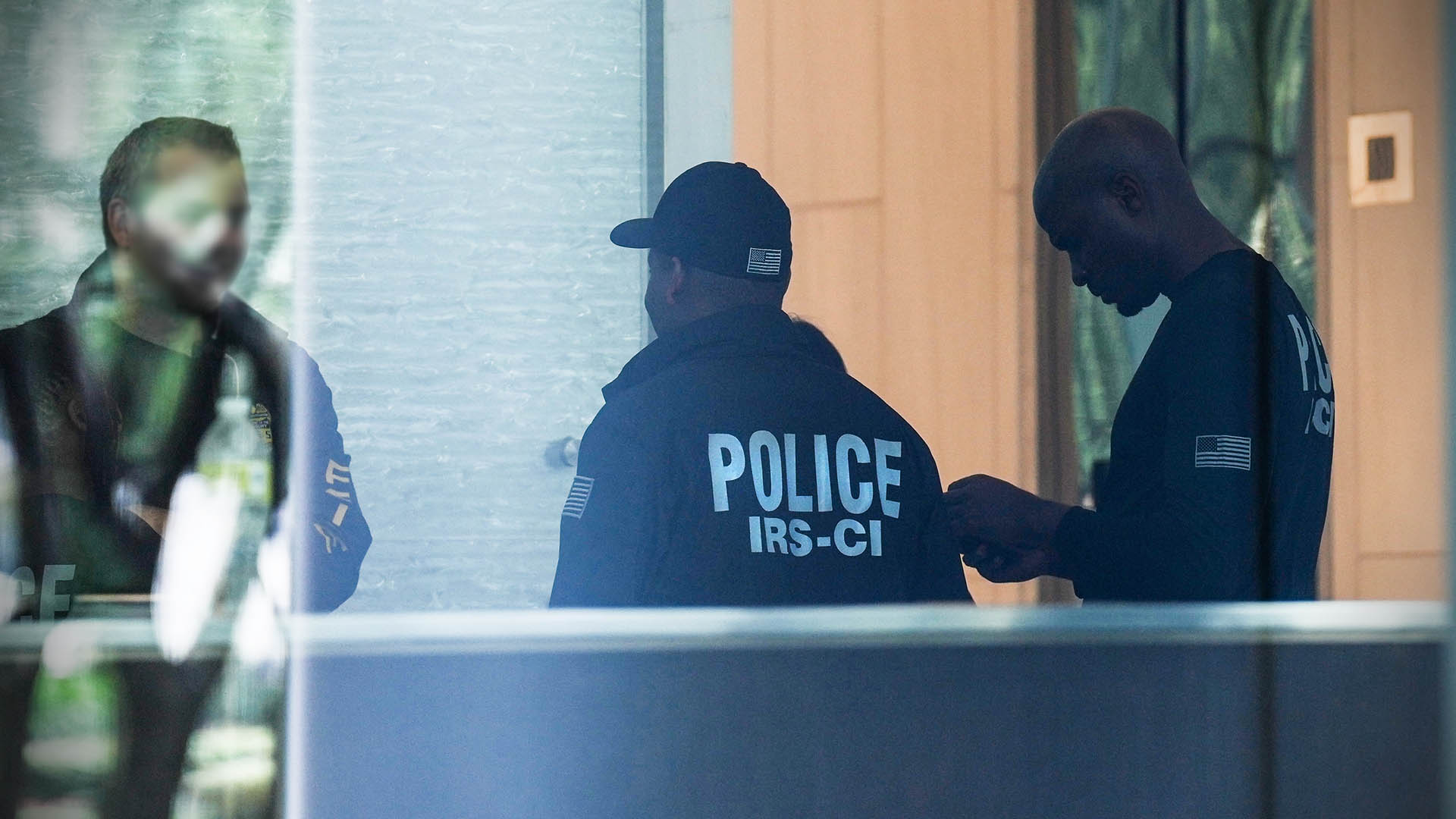New data shows IRS’s 10-year struggle to investigate tax crimes
The number of cases the wider U.S. tax agency refers to its criminal unit has plummeted.

The U.S. Internal Revenue Service’s sprawling civil divisions referred just 157 tax cases for criminal investigation last fiscal year — out of more than 200 million tax forms filed with the agency annually, according to new federal data. IRS criminal investigators accepted just 104 of such cases for further action in 2023, the fewest in the 10 years of data obtained by the International Consortium of Investigative Journalists.
The IRS’s civil divisions, which comprise the vast majority of the agency’s workforce, are supposed to flag egregious tax cases for potential prosecution from the volumes of returns they process and audit. These referrals are often associated with large dollar figures and wealthier taxpayers, who in recent years have seen weak enforcement from the depleted tax agency.
The new data shows a 10-year plummet in the number of possible tax crimes identified by civil investigators. Last year’s referrals represent a 58% drop from a decade prior, when agents referred 377 tax cases.
“It’s embarrassing and unacceptable,” Charles Rettig, who was the IRS commissioner from 2018 until 2022, told ICIJ of the falling referral numbers.
In mid-2022, Congress granted the IRS an additional $80 billion, in part to staff up the agency’s divisions that audit millionaires, billionaires and large corporations. After years of minimal enforcement on wealthy tax cheats, the agency is now beginning an unprecedented effort to strengthen its ability to take on the ultra-rich.
In comments to ICIJ, the IRS attributed the low numbers of referrals, known as fraud referrals, to understaffing and operational interruptions stemming from the coronavirus pandemic. But the agency pointed to a silver lining in the data: Although referrals have declined, the portion of those that IRS criminal investigators decided to ultimately pursue rose, meaning the smaller number of cases at least appear stronger on the whole. The agency also said interregnum numbers show a 17% increase in referrals so far this fiscal year — a possible early sign of an enforcement uptick after the infusion of new funding.
Old challenges, new resources
Several former IRS officials who recently left the tax agency told ICIJ they were exasperated by the downward trend of referrals being sent to the criminal unit.
“There was a treasure trove of potential fraud cases within the civil divisions that were not being elevated and addressed,” Eric Hylton, a former deputy chief of the agency’s criminal investigation division, told ICIJ. “More criminal cases needed to be prosecuted.”
Former IRS commissioner Rettig said that he was shocked to discover that only 7% of the IRS’s criminal investigations were referred from the civil divisions when he arrived at the agency. Rettig questioned why the referral numbers were so low even as the agency recently described 125,000 instances of wealthy people failing to file their tax returns — a huge number of potential crimes. “It’s sitting right in front of them,” Rettig said.
Experts widely agree that the effort to overhaul the IRS will take years. The agency must hire and train thousands of new officers and modernize its sprawling data systems. This longterm quest has been made more difficult by continuous attacks from congressional Republicans who have made it a priority to strip away the IRS’s new funding. Over the past two years, the agency’s opponents on Capitol Hill have succeeded in removing more than $20 billion of the IRS’s newly-awarded funding.
Prior to the 2022 funding boost, a decade of deep budget cuts wreaked havoc on the agency. The IRS lost crucial staff members as the number of taxpayers increased and the complexity of sophisticated tax schemes deepened. Wealthy individuals and major corporations began to run circles around the weakened agency. By 2019, tax audits of the working poor had become as prevalent as those targeting the rich — in part because it was simply easier. As the agency suffered, its rate of referrals from its civil divisions declined.
Kathy Enstrom, a former executive director of field operations at the IRS’s Criminal Investigation division, told ICIJ that fewer referrals from the civil divisions meant that the agency’s criminal investigators were increasingly trying to find cases on their own through data analysis.
“Not having that stream of casework coming in does hurt,” she said.
Rettig said the agency has tried in recent years to bolster its capabilities by placing agents with experience in crafting criminal cases into the civil divisions to help spot egregious tax cheating. In 2020, the IRS established the Office of Fraud Enforcement in part to help agents identify potential serious crimes in the agency’s volume of tax data.
In addition to diminished resources, former agents pointed to a number of other issues that could discourage agents from referring cases to criminal investigators. These included rigid audit protocols and a lack of training on the civil side. Some pointed to agents’ fears that they’d do extra work to craft a referral only for it to be rejected by IRS criminal investigators.
The idea is to hand the government a big check to keep it from going criminal. — former IRS special agent Ron Braver
Former agents also flagged wealthy taxpayers’ savvy interactions with the agency as likely reducing the number of fraud referrals. Rich individuals could, for instance, rapidly settle an audit, even when potentially egregious conduct had occurred. “The idea is to hand the government a big check to keep it from going criminal,” said Ron Braver, a former special agent in the IRS’s criminal division who is now a partner at the consulting and forensic accounting firm HKA.
In a case like that, the IRS could get the money it’s owed but potentially forgo the larger deterrent effect of a public prosecution. Fraud referrals have outsized bearing on the agency’s efforts to face wealthy taxpayers, partly because federal prosecutors are unlikely to pursue small-dollar cases, according to former agents.
Wealthy people are believed to conduct an outsized share of tax dodging. According to recent Treasury estimates, the top 1% of Americans are responsible for 28 percent of the “tax gap” — defined as the difference between taxes that are owed and collected. This number amounted to an estimated $163 billion annually in 2019.
Eric Hylton said public discouragement of tax cheating was a key driver of his focus on referrals at the agency. The IRS is subject to strict secrecy laws regarding much of its proceedings until a case breaks into public view during a criminal prosecution.
In his last two years at the IRS, Hylton moved from the agency’s criminal arm to serve as commissioner of its Small Business and Self Employed Division, one of the IRS’s largest offices. He said one of his top priorities at the civil division was to increase fraud referrals. The IRS data shows a slight uptick in fraud referrals for 2021, his last year there.
“It comes down to fairness to taxpayers,” Hylton said. “We really wanted to send the deterrent message: If you’re trying to evade taxes, then you could go to jail.”


